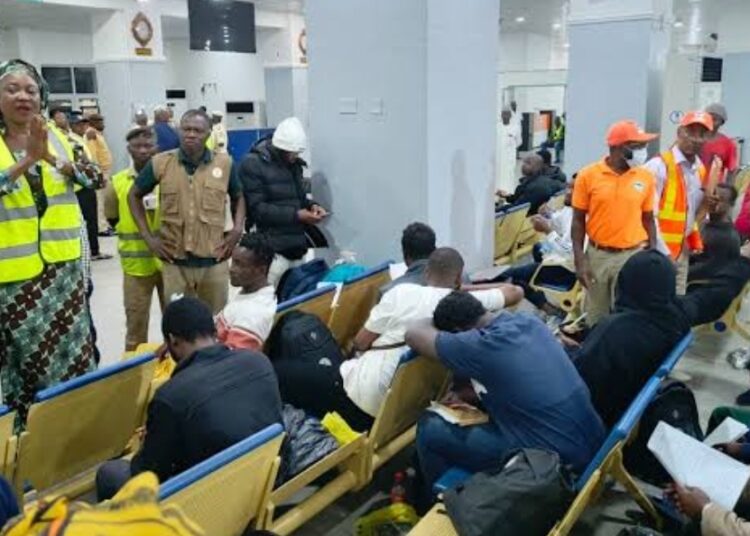The Federal Government has received 103 Nigerians deported from Turkey over expired visas and other irregular migration issues.
This was disclosed by the Federal Commissioner of the National Commission for Refugees, Migrants, and Internally Displaced Persons (NCFRMI), Alhaji Tijani Ahmed, during the deportees’ profiling in Abuja on Friday.
A representative of the Director of Migration Affairs, Amb. Catherine Udida, noted that while 110 deportees were expected, only 103 arrived, all of whom were male.
“Some of them have been in the deportation camp for some months, and now that they are here, we are hoping to follow up on all the allegations gathered in their profiling.
“We will go through the profiling forms because some of them have said that their passports were seized.
“We are going to follow up with the Turkish authority because the passports are still the property of the Federal Republic of Nigeria,” Udida said.
She said that NCFRMI is mandated to support all returnees, regardless of their status, including through training programmes aimed at reintegrating the returnees into society.
Similarly, the North-Central Zonal Coordinator of the National Emergency Management Agency (NEMA), Bashir Garga, pledged government support for the returnees through collaboration with relevant agencies.
One of the deportees, Mr. Arinze Stone, reported how he was detained in a Turkish camp for six months.
Stone, who had been a businessman in Turkey for several years claimed that the Turkish authorities began arresting individuals with expired or pending documentation after the European Union started paying Turkey for managing illegal immigrants.
“Each day, the European Union pays 120 Euros per head of immigrants in the Immigration Camp.
“Ever since I had been in Turkey, I always had my resident permit renewed. It just got expired and the Turkish authority collected 700 Euros from me for tax and insurance and then canceled the renewal,” he said.
Stone added that the deportation fee of approximately 2,500 euros, which was supposed to be provided to each deportee, was not paid.
Another deportee, Moses Emeh, who had operated a registered company in Turkey for over eight years, stated that his resident permit was forcibly canceled as he was planning to convert it into a work permit.
Emeh expressed the hope that the Nigerian foreign affairs ministry would address these diplomatic issues and called for sensitisation programmes for Nigerians in Turkey, citing lack of transparency from Turkish authorities.
“I don’t know where to start from. But I believe this is a diplomatic issue and I trust our Foreign Affairs Minister, to follow it up.
“I also think that they should have a sensitisation programme for Nigerians still living over there in Turkey because the Turkish Government is not being sincere and transparent with us,” Emeh stressed.





